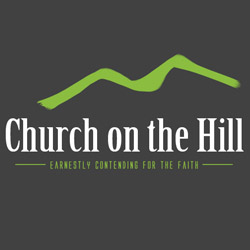7Therefore as the Holy Spirit says, “Today, if you would hear his voice, 8do not harden your hearts as in the revolt on the day of testing in the wilderness, 9when your fathers put me to the test in the trial and saw my works 10for forty years; therefore I was angry with this generation and said, ‘They always go astray in their hearts, and they do not know my ways.’ 11So I swore in my wrath, ‘They will not enter into my rest.’” 12Beware, brothers, lest some of you have evil, unbelieving hearts that lead to apostasy from the living God. 13But encourage one another each day as long as it is called “today,” so that none of you may be hardened by the deception of sin. 14For we have come to share in Christ, if indeed we hold fast steadfastly to the professed obligation until the end. 15In the saying: “Today if you would hear his voice, do not harden your hearts as in the revolt.” 16For who were those who heard and were disobedient? Were they not all who came out of Egypt by Moses? 17And with whom was he angry for forty years? Was it not the sinners whose corpses fell in the wilderness? 18And to whom did he swear that they would not enter into his rest except those who were disobedient? 19So we see that not all were able to enter because of disbelief.
The author of Hebrews has argued for the superiority of Christ to the angels, and now is in the middle of his contention that Christ is greater than Moses as well. As part of this premise, he points out that the very ones chosen for liberation from Egypt revolted from God by their own choice. He cites Old Testament scripture to describe this choice as a “hardening of the heart.” The heart, or the affections, burns hotly at the moment of commitment, but over time grows cold and listless. It must be regularly encouraged and upheld, and this is done in community. That’s why the author commands his audience to encourage one another daily—in order to prevent the type of heart that eventually abandons God entirely. The heart that is allowed to lapse into this state of listlessness and apathy is really an “unbelieving” heart; that is, it is the heart that doesn’t truly accept God at his word about the nature of sin and salvation. Because of such a hardening, disbelief is a state into which a believer may fall by not receiving the encouragement of the fellowship.
One of the major subthemes of this book will be the significance of the local church for the protection and growth of its members. It’s that critical that Christians be with one another—it is literally the only way that the Bible gives for Christians to keep their hearts “believing.” The American idea that a Christian can maintain his own internal belief without others is unbiblical and foreign to historic Christianity, but it is extremely popular here with Protestant evangelicals. This is why the early Church Father Cyprian said that “whoever has God for his Father must take the Church for his mother,” and argued that there is no salvation apart from the church. It is not that the gift of salvation originates in the church; rather, God continually saves the individual through the assembly of the local church. He always has (see: Joshua, Judges, and the rest of the Old Testament, as well as the New Testament) and he always will. We need daily encouragement from one another. We need each other much more than we think.
Whom are you encouraging today?
